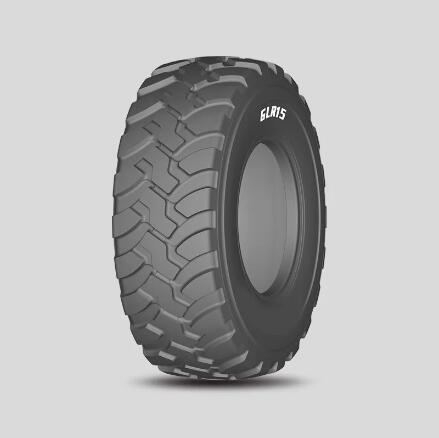How to Choose and Maintain Your Wheel Loader Tire L2 - Radial
2024-08-06
Introduction
Selecting the right tire for your wheel loader is crucial for ensuring optimal performance and safety. The Wheel Loader Tire L2 - Radial is an excellent choice, but understanding how to choose the right one and maintain it properly can extend its lifespan and improve your equipment’s efficiency. In this blog, we will provide a comprehensive guide on selecting and maintaining your Wheel Loader Tire L2 - Radial.
Factors to Consider When Choosing Wheel Loader Tire L2 - Radial
1. Load Capacity: Ensure that the tire you choose can support the weight of your wheel loader and the loads it will carry. Check the manufacturer’s specifications for load capacity ratings.
2. Tread Pattern: The L2 tread pattern is designed for general use on various terrains. However, consider the specific conditions in which your wheel loader will operate. If you expect to work in particularly muddy or snowy conditions, a deeper or more aggressive tread might be necessary.
3. Size and Fit: Make sure the tire size matches your wheel loader’s specifications. Incorrect tire sizes can lead to poor performance, increased wear, and potential safety hazards.
4. Durability: Look for tires made from high-quality materials with reinforced construction. These features will enhance the tire’s resistance to cuts, punctures, and abrasions, ensuring longer service life.
5. Brand and Warranty: Choose reputable brands that offer warranties and after-sales support. A good warranty can provide peace of mind and protect your investment.
Tips for Maintaining Your Wheel Loader Tire L2 - Radial
1. Regular Inspections: Conduct frequent inspections to check for signs of wear, damage, or irregularities. Look for cuts, cracks, punctures, and uneven tread wear.
2. Proper Inflation: Maintain the recommended tire pressure at all times. Under-inflation can cause excessive heat buildup and wear, while over-inflation can reduce traction and lead to a harsher ride.
3. Wheel Alignment: Ensure that your wheel loader’s wheels are properly aligned. Misalignment can cause uneven tire wear and reduce the lifespan of your tires.
4. Rotate Tires: Rotate your tires regularly to promote even wear and extend their lifespan. Follow the manufacturer’s guidelines for rotation patterns and intervals.
5. Avoid Overloading: Do not exceed the tire’s load capacity. Overloading can cause excessive stress and lead to premature tire failure.
6. Clean Tires: Keep your tires clean, especially if you work in muddy or debris-filled environments. Remove any stones, dirt, or debris lodged in the tread to prevent damage and maintain optimal performance.
7. Monitor Tread Depth: Keep an eye on the tread depth and replace the tires when they become too worn. Adequate tread depth is essential for maintaining traction and stability.
Advantages of Proper Maintenance
1. Extended Lifespan: Regular maintenance can significantly extend the lifespan of your tires, reducing the frequency and cost of replacements.
2. Improved Performance: Well-maintained tires provide better traction, stability, and fuel efficiency, enhancing the overall performance of your wheel loader.
3. Safety: Properly maintained tires reduce the risk of accidents and equipment damage, ensuring a safer working environment.
4. Cost Savings: By preventing premature tire wear and damage, you can save on repair and replacement costs, as well as reduce downtime.
Conclusion
Choosing the right Wheel Loader Tire L2 - Radial and maintaining it properly are crucial steps in ensuring the efficiency and longevity of your equipment. By considering factors such as load capacity, tread pattern, size, and durability, you can select the best tire for your needs. Regular inspections, proper inflation, wheel alignment, tire rotation, and cleanliness are essential maintenance practices that will keep your tires in optimal condition. Invest time and effort in tire maintenance, and you will reap the benefits of improved performance, safety, and cost savings in the long run.



